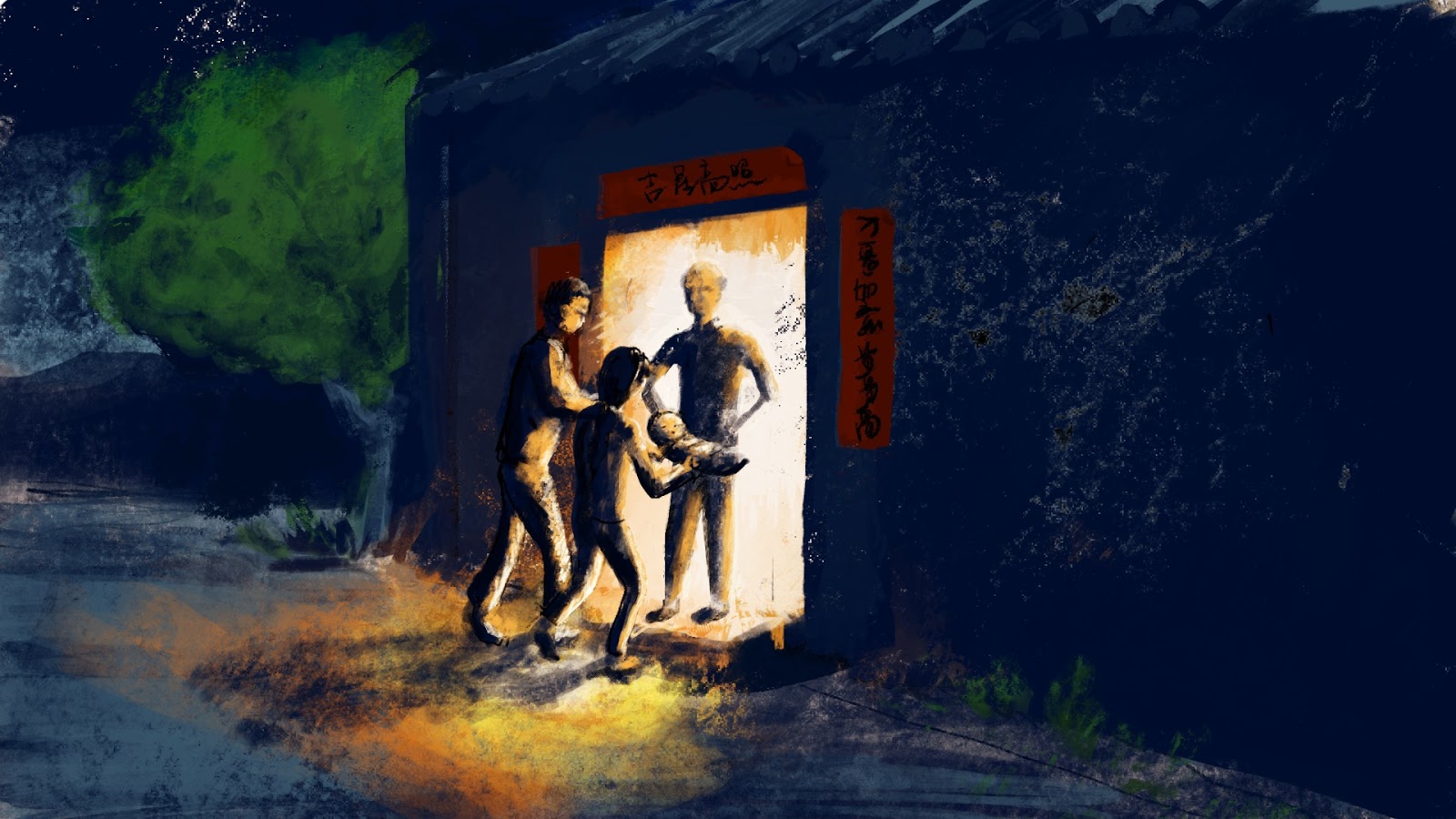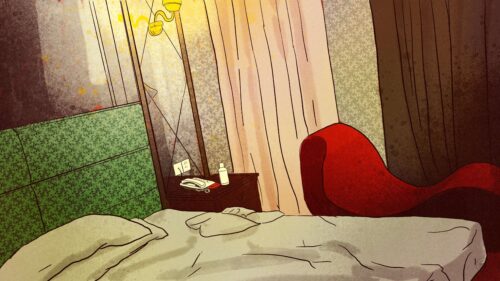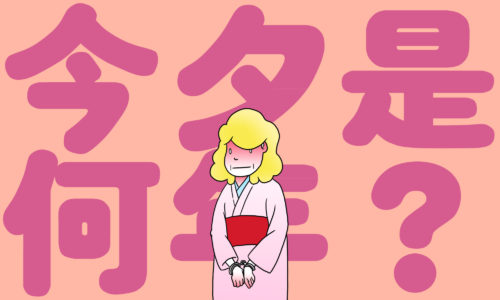‘We have never abandoned you’: A Chinese family’s search for their daughter
This is the story about a Chinese couple’s unrelenting search for their daughter. It is a testimony to the strength of the human heart — and what a system cannot crush.

China’s one-child era may be over, but it has left countless broken lives in its wake. Since China began its international adoption program in 1991, about 150,000 Chinese children have been adopted by foreign families — over 80,000 of them by Americans. Today, many of these adoptees have grown up and chosen to look for their birth families in China, which has been facilitated with DNA testing and increased social awareness such as the 2019 documentary One Child Nation. Further, support from foster families, research organizations (e.g., Research-China.org), as well as the Chinese government has enabled a growing number of overseas adoptees to reconnect with their birth parents.
The Chinese parents, on the other hand, must cope with complex moral dilemmas. They are often judged for being cruel and discriminatory, despite the fact that many of them are also victims of a remorseless policy, patriarchy, and poverty.
What follows is the story about a Chinese couple’s unrelenting search for their daughter. It provides a rare window into which we see the affected Chinese parents’ internal struggles. It reveals layers of the bizarre realities of contemporary China, how the power system works from the ground up, and the lengths a rural couple must walk to find their lost child. It is a testimony to what the system cannot crush: a pure human heart.
This story was reported by Chinese journalist Wei Jia in 2019. To protect the people involved, pseudonyms are used for all the Chinese characters in the story, as well as the author. The original Chinese version can be found at SandwiChina. I’ve translated the following, which is about two-thirds of the original story, from Chinese to English.
—Liuyu Ivy Chen

At the orphanage, Lǐ Guómíng’s 李国明 daughter was given the name Lǚ Èr 吕二 (er meaning “second”), randomly jotted down by the village head who carried her there. Inside the orphanage, the girl was called Jiāng Lì 姜丽 — Jiang being the last name of the orphanage head at the time, after whom all the orphans were named.
But these were not her real names. Li Guoming had named his daughter Lǐ Mèngyán 李梦妍 — meng meaning “dream,” yan for “beautiful.”
A shy speaker, Li hesitated for a long while before explaining how he came up with the name, blushing up to his ears: “I named my daughter Mengyan because I dreamt that she left me; I hoped to see her when I woke.”
Wuli Village in Jiangxi Province is a rural community with deep-rooted patriarchal traditions — and sustaining one’s ancestral lineage through male heirs remains a sacred duty. When China instituted its family planning policy in the 1980s that limited each household to one child, the village was struck as if by a thunderbolt. Villagers scrambled to make plans.
“In the village, if you don’t have a son, you’ll forever be shamed,” Li said at his home in Jiujiang in the fall of 2019. “You’ll be called ‘that extinct one,’ meaning your root is cut, a terrible thing to say. Everyone knows that daughters are more well-behaved than sons, but you can’t change a rural mindset.”
After Li’s older brother had two daughters, he threw a banquet at home to celebrate. But Li’s father, after a few drinks, ran out to cry on the mountaintop. He was surrounded by no one but sagging graves. The old man’s wails pierced the sky. “It broke our hearts to see the old man in such despair,” Li Guoming said. And so, Guoming decided to shoulder the responsibility of producing a family heir.
In the 1990s, the family planning policy allowed a rural household to have a second baby if the first one was a daughter. But if the family already had two daughters — becoming a “two-daughter household” — the parents would be persuaded to have a sterilization procedure. In Wuli, in order to secure a male heir, many families behaved like soldiers engaged in guerilla warfare.
Having had one daughter already, Li Guoming and his wife, Lǐ Fēn 李芬, decided to conceal Li Fen’s second pregnancy. “If caught, they’d not only destroy our house and burn the furniture, but also abort my baby and sterilize me with force — no hopes for more babies,” Li Fen said. She lived in fear and anxiety every day during her pregnancy, hiding in her mother’s home. On December 9, 1993, she endured excruciating pain to deliver her second baby at home, alone — she dared not find a midwife.
She gave birth to a translucent and beautiful baby girl.

The joy of giving life was paired with fear for the family’s uncertain future. Li Guoming’s brother-in-law made a proposal: “I have a brother-in-law whose family has always wanted a daughter. You can trust them to temporarily look after your baby girl.” The brother-in-law was the head of a neighboring village less than a mile away.
At the time, officials searched every household for law breakers; a newborn’s cry would be a loud whistle. A week later, Li Guoming and Li Fen decided to send their daughter to the other village.
At the break of dawn, the baby girl wailed. Li Fen, recuperating in bed, also cried. Li Guoming stood outside the house, quietly wiping away his tears. The family wept in waves. Li Guoming’s brother-in-law urged: “Don’t be late, or others will see it.”
The couple prepared cash, baby formula, clothes, shoes, nursing bottles, and other necessary items for their daughter. According to local customs, when sending a child away, the adults should buy noodles and rice candies so that the child will remember her way back to eat homemade meals in the future — Li Fen prepared these as well. At the time, she was convinced that the separation was only temporary, and she would bring her daughter home as soon as the political whirlwind subsided.
Carrying his sleeping daughter, Li Guoming walked to the village head’s house with his brother-in-law. Li knocked on the door three times. The village head opened the door and took the baby. Li and his brother-in-law turned and left. Without extra words, Li quietly suffered from the pain of being severed from a loved one — described in TV dramas as “flesh being peeled off bones.”
In order to make a living and dodge the family planning agency’s search, Li Guoming and Li Fen left for Guangdong to become migrant workers. Far away from home, they regularly called their brother-in-law to check on their daughter, and always received reassuring news.
Lifelong regret
In 1998, nearly five years later, the couple returned home. They bought new clothes, toys, and snacks to visit their daughter, but were told that the village head’s family had sent her to an orphanage after looking after her for just two days.
Li Fen broke into tears. Li Guoming immediately ran to the orphanage to look for his daughter, but was stopped and thrown out by the staff.
In the following days, his wife cried from dawn to dusk. Li Guoming stood outside the orphanage all day long, asking whoever entered the gate. Nobody said anything. He stood there until dark, returning the next morning.
A week later, one of the staff members asked Li Guoming for his daughter’s birthdate, searched for it, and told him that she went overseas and was living a life 10,000 times better than his, and advised him to stop looking.
Li Guoming stood there in shock, his legs turning into jelly. He’d never thought that he’d lose his daughter forever.
Remorse tormented the couple. Whenever Li Fen remembered her daughter, she wept. She thought the pain of giving birth alone had pushed her physical limits to the extreme, but the pain of losing her daughter was beyond what she could bear. Li Guoming began to suffer from insomnia, worrying that his daughter might be mistreated by her foster parents, that she would be discriminated against and bullied in a foreign country, and that she would resent him. He swore to find his daughter: “Even if she doesn’t want to acknowledge us, as long as we know she is healthy and happy, we’ll live in peace.”
‘There is nothing to be ashamed of’
A small village is a small society. Every son and every abandoned child in a family is public knowledge. In Wuli Village, the only people to have never given up looking for their child are Li Guoming and Li Fen.
They went to the village and town government offices to explain the situation, wrote a letter of repentance, and agreed to pay a fine. “To us, the fine was an astronomical amount. We toiled as migrant workers for years to finally pay it off,” Li Guoming said.
Some mocked Li for his naivety. He answered not without embarrassment: “What if my daughter comes back to look for us? We registered our information with the government bureaus so that she can find us.”
He also contacted local newspapers and TV stations, hoping they could help spread the word, but was rejected every time. He was told, “Given your situation, how dare you make it public?” Li could only explain with grief that he had never abandoned his child, he’d only temporarily left her to someone else’s care. “I won’t rest in peace until I find my daughter.”
He left his cellphone number and home address to the newspapers, TV stations, orphanages, government bureaus, and hospitals. For 25 years, he never changed his number or turned his cellphone off, fearing he’d miss an important lead.
After laboring in remote towns for another seven years, Li Fen’s health deteriorated. The couple took out loans and returned home to open a car wash by the road leading into Wuli. “Because I have only an elementary school education and know very few people, I figured I could meet more people from different backgrounds by washing their cars and filling their water,” Li Guoming said. “I’ve met officials, foremen, and tourists; the more people I meet, the more chances to find my daughter.”
He printed out stacks of flyers and handed them to whoever entered his shop. Some found it bizarre and teased him: “I’ve seen parents give their children away, but have never seen any look for them.” Some ridiculed him: “If you want a daughter, go pick one from the temple.” At the time, unclaimed babies littered the village. “Walk around the temples and ancestral halls, and you’d pick up seven or eight abandoned babies,” said Chen Yi, who worked at the local orphanage in the 1990s.
Hearing these biting remarks, Li Fen would comfort her husband: “There is nothing to be ashamed of in looking for our own child. No matter how awful the stuff they say, we’ll keep looking. Don’t be afraid.”

Whenever he had time, Li Guoming went to the orphanage. He didn’t bother the staff, but stood at the gate, looking for foreigners with a child. When his financial situation improved, he bought baby clothes worth more than 10,000 yuan ($1,500) and donated them to the orphanage. The first time he stepped inside, he saw babies filling the hallway, some crying, some sleeping, some sucking pacifiers — a sight that deeply pained him.
It was the first time anyone donated so much stuff to the county orphanage. Several staff members enthusiastically pulled Li Guoming aside and said they could call a reporter to publicize the couple’s good deeds. Li answered: “No, no, I’m terrified of that. I only beg you to tell me if my daughter returns.”
After 10 years, a glimmer of hope
For Li Guoming, searching for his daughter was like fumbling in the dark. But he was determined to find her, even if it took a lifetime. “Home is where the parents are; if we’re gone, our daughter will have nowhere to return.”
It wasn’t until 2008 that Li Guoming’s decade-long search saw its first glimpse of hope.
A regular customer at his car wash who held Li in high regard and was moved by his persistence told him: “I have a good relationship with the current head of the orphanage. I can help you get your daughter’s adoption file, but I’m going to need some cash.” Li immediately understood. He withdrew a stack of cash and forked it over. As long as the man could find his daughter, he was willing to pay any price.
The next day, Li received his daughter’s adoption file, which he held like a fragile treasure, happy tears filling his eyes.
He searched online every day for news on overseas adoptees. He typed in the keywords 回国寻亲 huíguó xún qīn — return to China in search of family members. “To be honest, I didn’t even graduate from elementary school, but I learned to explore the internet using my cellphone in order to find my daughter,” Li said. He felt envious and emotional whenever he saw an overseas adoptee returning home to look for their birth parents.
He thought that as long as he laid a foundation, whenever his daughter would eventually decide to return, she wouldn’t be disappointed.
Sometimes, Li left online comments to encourage overseas adoptees, sending them good wishes. He pointed out: “Whether it’s the adopted children looking for their parents or the parents looking for their children, it’s not easy for either side.”
In 2016, Yáng Bīng 扬冰, a Hunan girl who had returned to China to find her parents, contacted Li. She told him: “I’ll recommend a friend to you. She can help you find your daughter.”
This friend turned out to be Longlan Stuy — featured in the 2019 documentary One Child Nation — a Chinese American volunteer for DNAConnect.org with 18 years of experience helping overseas adoptees find their biological parents. With her help, more than a hundred adoptees around the world have reunited with their birth families. Li Guoming finally had more than hope: he had a way forward.
After 20 years…
Longlan, who lives in Utah, followed the address on the adoption file and found the email address of Jiang Li’s foster mother. She wrote an email to her and collected a sample of Li Guoming’s DNA.
While waiting for a reply, Longlan felt Li Guoming’s mounting anxiety. She often received messages from him between one and three in the afternoon — which was one to three in the early morning in China. A typical message read: “Hello, is there any news about my daughter? Please help me!” But she had no good news to deliver.
Sometimes, she felt Li Guoming on the fringe of a breakdown. His messages would read: “Greetings, Ms. Lan! Is there still no reply? Should I give up? I feel exhausted looking for her. It’s all my fault. It’s been too painful missing her day and night in the past 10 years. I owe her. I shouldn’t have given her away. Sorry, please help me. Thank you!”
Five months later, Longlan received a call from Jiang Li. With great excitement, Jiang Li asked: “Is everything you wrote in the email true? Have my parents been looking for me all these years? Is it true?”
Longlan, choked with tears, answered: “Yes, it’s all true.”
Longlan thought the story would have a happy ending. But since Jiang Li was raised by a single mother, she decided not to contact her Chinese parents in order to show respect for her foster mother. “Thank you for telling me that my biological parents didn’t abandon me and have been looking for me. This fact is very important to me!”
Jiang Li asked Longlan to share her recent photos with her Chinese parents and tell them, “Thank you for giving me life. Thank you for looking for me. I feel very lucky to know that I’ve always been loved and missed by my own parents.”
It was 2018. Li Guoming had been looking for his daughter for 20 years.
At first, Li Guoming was stunned to hear about his daughter. Gradually, he came to understand her decision. He said: “Parents will never blame their child. She has her concerns and we won’t disrupt her life. But whenever she is ready to see us, we’ll always be here.”
Upon hearing the news, Li Fen broke into sobs: “I want to kneel down in front of her [American mother] and kowtow to her, thanking her 10,000 times for raising my daughter. She is my savior. We understand our daughter’s decision. All we want is for her to be well.”

Longlan has visited many families in different parts of China and come to learn about the complicated reasons that force parents to give away their children. “Some parents feel it’s impossible to find their child, so they don’t try,” Longlan said. “Some feel guilty for having ‘abandoned’ their child and would rather avoid the topic. Yet most parents don’t know where to start because they live in rural China with little education or information.”
“Whether it’s overseas adoptees or Chinese parents, the journey toward reunion has never been a one-way odyssey,” Longlan continued. “Only when both sides step up can they hope to see each other again.”
For more information about DNA testing and the overseas adoptee community, please contact Longlan Stuy at: familyluv2002@gmail.com (WeChat: LannieGirl, QQ: 1548086044).
This story originally appeared on SandwiChina and is published here with permission. Liuyu Ivy Chen, who translated this piece, is a writer and translator who co-founded TransWords.net. A third daughter who grew up in central Zhejiang, she explores gender, family, migration, and history through grassroots storytelling across geographic borders. Her previous piece for The China Project explored her niece Didi’s struggles with cerebral palsy.





